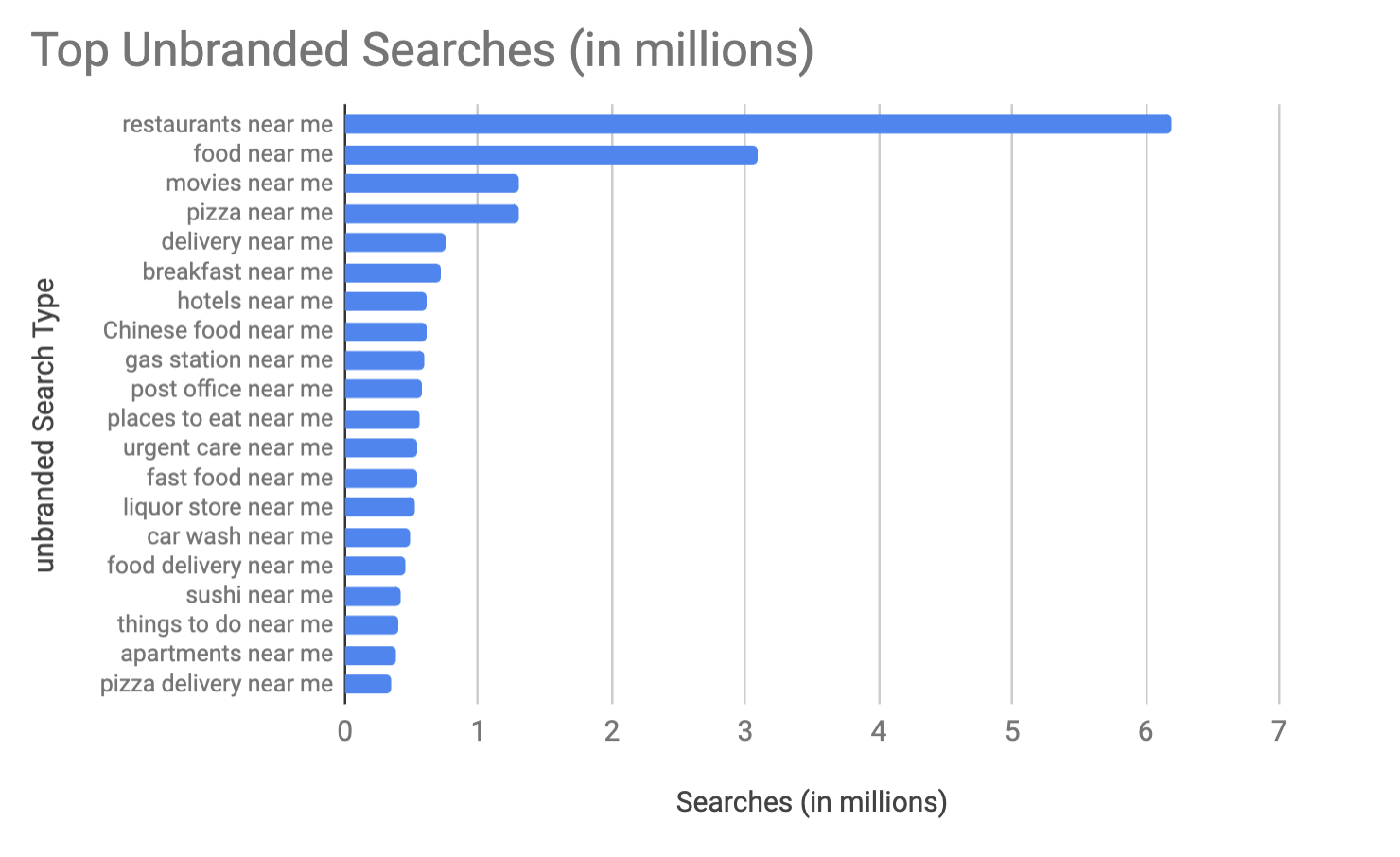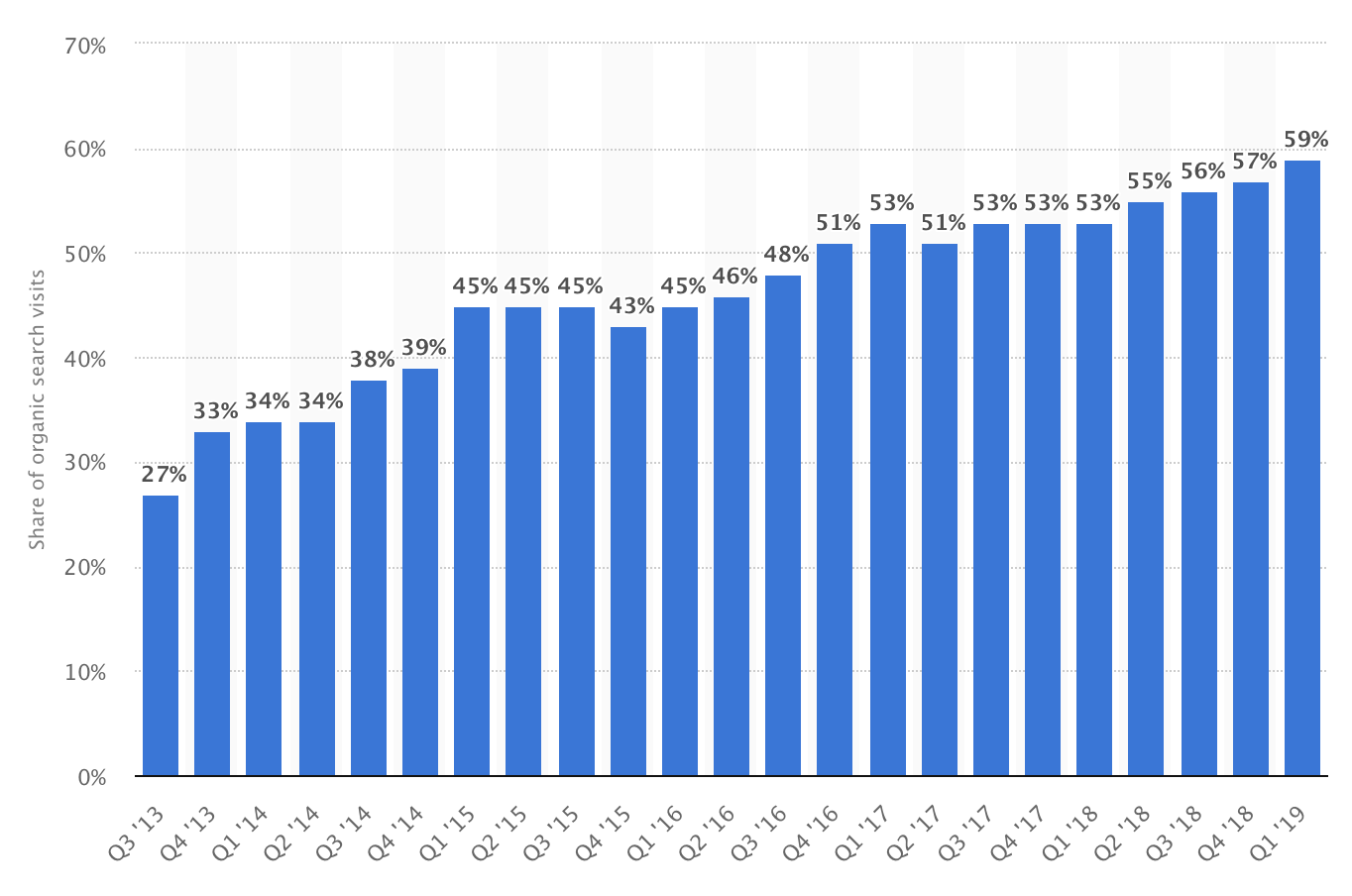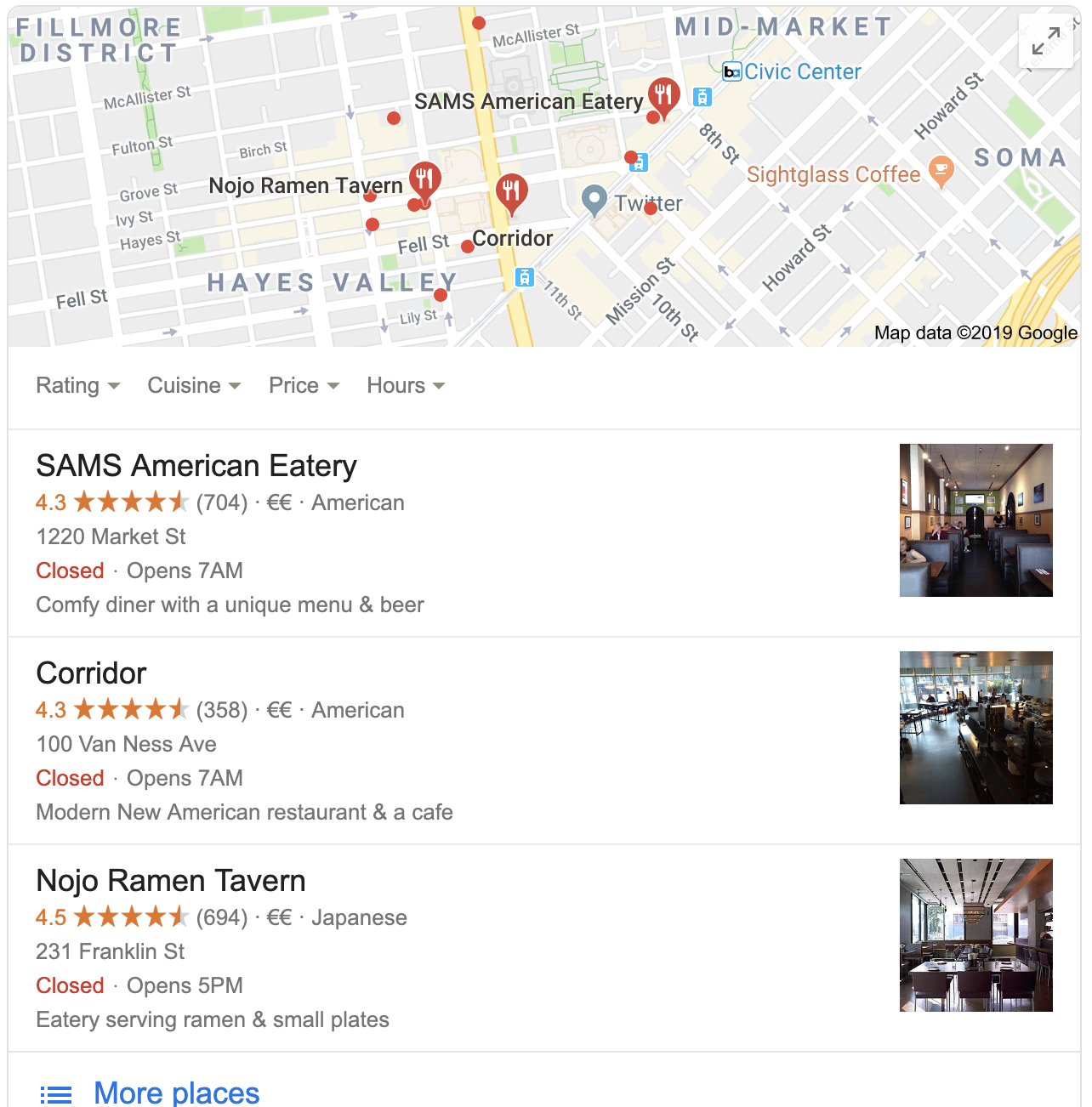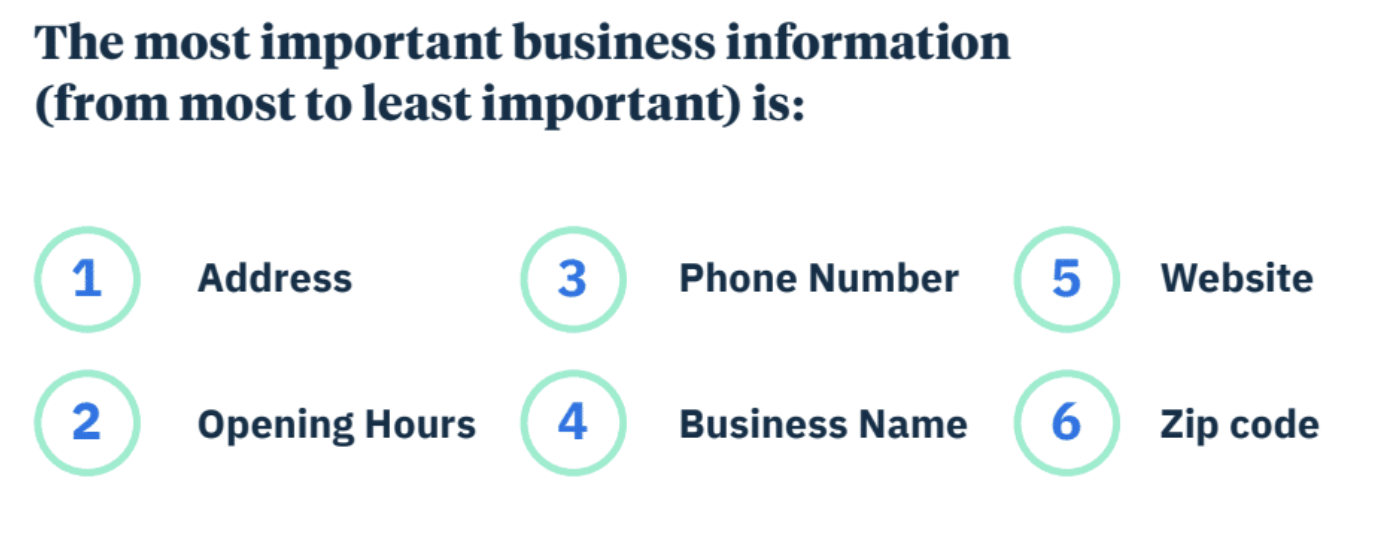Why Restaurants Need to Optimize for ‘Near Me’ Searches
4 Min Read By Brad Fagan
The popularity of "near me" searches continues to rise. A consumer can now put in a search command into their phone such as ‘restaurants near me’ and instantaneously be presented with a list of restaurants in their area.
It’s no secret that restaurants need an online digital marketing strategy. Yelp and GMB reviews already send hungry consumers to your door day after day because they are looking for good quality dining experiences in their area.
‘Restaurants near me’ is by far the most popular ‘near me’ search query with 6.2 million organic searches per month.
What Is a 'Near Me' Search?
A "near me" search is an online search query carried out by a consumer who is looking for business locations near to their current area.
Restaurants Are Most Impacted
"Restaurants near me" is by far the most popular "near me" search query with 6.2 million organic searches per month. In fact, food-based searches make up four of the top five positions in all unbranded "near me" queries including "food near me," (3.1 million) "pizza near me" (1.3 million) and "delivery near me" (750K).

Fifty-five percent of the top 20 unbranded ‘near me’ search queries are also for food requests so when consumers are searching for something locally, it’s usually a meal.
The Rise of ‘Near Me’ Searches Has Changed Restaurant Marketing
The smartphone has changed things. According to Statista, smartphone search queries have grown from 27 percent in 2013 to dominate almost 60 percent of the entire organic search market.

This ushered in one of the great evolutions in consumer search – the ability to search for products or services nearby by combining a smartphone, a search engine and a GPS.
The Restaurant sector has been the largest beneficiary of that change in consumer behavior. Growth in Google trends data since July 2014 shows us that food-based queries have continued to grow at an extremely high rate.

This data does suggest that restaurants really need to focus on optimizing for local search queries by making sure they have a good online digital strategy in place for connecting with ready-to-eat consumers in their area.
Is Your Restaurant Optimized for 'Near Me' Search?
Although the hospitality industry has a great opportunity to reach new customers through ‘near me’ search, business locations within that industry are among the worst at optimizing for it. In a voice search optimization study run by Uberall that included 73,000 business locations, we found that only 4percent of locations within the hospitality industry were perfectly optimized across Google, Bing and Yelp – three of the most important directories for local search engine optimization.
At first glance that might not seem like great news for restaurant owners but if you get the basics of local search engine optimization right than you’ll probably outrank your local competition.
What Do You Mean ‘Local Search Engine Optimization?'
When we talk about local SEO (search engine optimization) we are talking about ranking in the local three-pack. When a user types in "restaurants near me" into Google, they are presented with three results …

Research by Moz suggests that if you aren’t ranking in the coveted 3-pack, your chances of even being seen at all falls to about 8percent which means that if you aren’t showing up in the top three results, you’re going to be driving far less hungry mouths to your door.
So what do you need to do to successfully optimize for ‘near me’ search terms?
Tips to Optimize Your Restaurant for Local Search
Here are seven of the most important directories you should have a business profile on:
By listing your restaurant on the above seven sites, you will be covering the most important search engines, mapping services and review sites.
Sounds simple right? Well, here’s what most businesses don’t understand about business listings …
Listings alone are not enough.
The key to ranking in the local three-pack is accuracy and consistency of your business information.
Here is an example…
I randomly selected a Thai restaurant in San Francisco. When I ran them through Uberall’s online company presence check tool, which establishes the online presence, consistency and accuracy of a business location, we start to see how easy it is to have inaccurate location information online:
- On Manta and Facebook it wasn’t even listed
- The name of the restaurant is different on Yelp and Bing
- The website is missing on Bing and Foursquare
- There are no photos or opening hours on Foursquare
These inconsistencies may seem small, but they represent major trust factors to search engines looking to establish where to send hungry consumers looking for a meal in your area.
Optimizing Your Local Business Listings
- First, enter your address, opening hours, phone number, business name, website and zipcode on the most important directories (Google, Bing, Yelp, Apple Maps, Facebook, Foursquare, Trip Advisor etc. …)
- Make sure that each location you list has the exact same informationacross the different directories, review sites and search engines listed above
- Be as specific as possible about your business and what it does. Do you allow dogs? Offer vegan options? Have special offers?, the more information you provide, the more you will rank for specific search queries.
- Add photos that show off the best parts of the restaurant location.

Reviews Are Important, Too
The second part of your ranking strategy is your review management. Your review score, review volume and frequency with which you reply to customer reviews are all factors that determine your ranking in the three-pack.
Search engines want to know that customers like you, engage with you and that you engage right back.
I have included a few points below that are widely considered as the most important review actions to help you rank for ‘near me’ search queries….
Optimizing Your Reviews
- Get your customer to leave you reviews online by encouraging them while they are in your restaurant
- Encourage them to leave reviews on Facebook, TripAdvisor and Yelp – not just Google
- Make sure you reply to your reviews – 33 percent of customers who receive a reply to a negative review change their review to be more positive
- Get as many reviews as you can as often as you can. Review velocity is important for rankings
- Reply to reviews fast – information from Google suggests that business locations that reply to reviews in under five minutes are more likely to rank higher in local search


